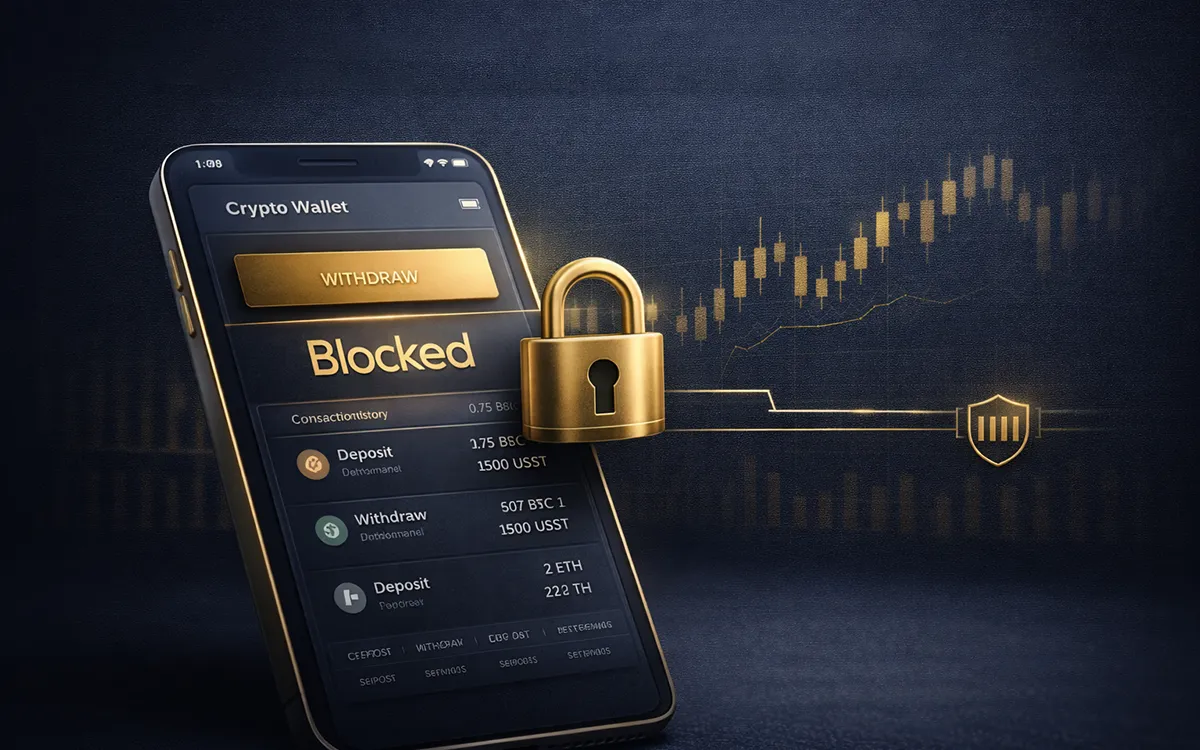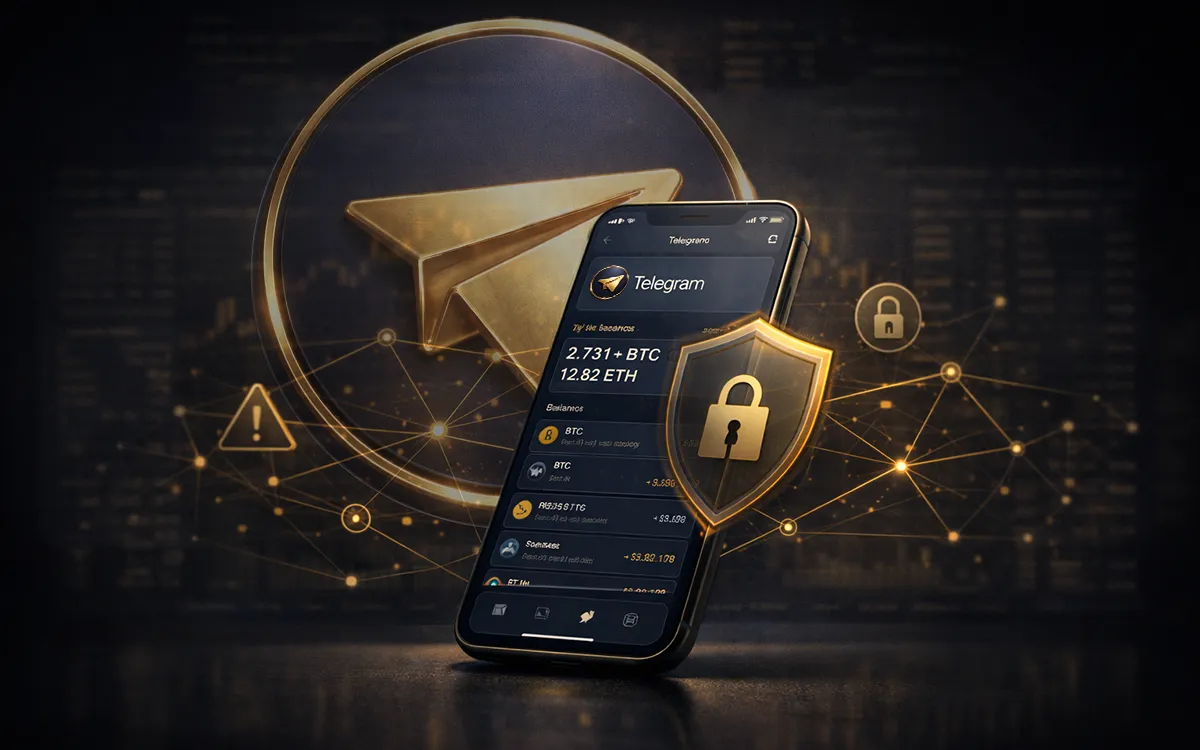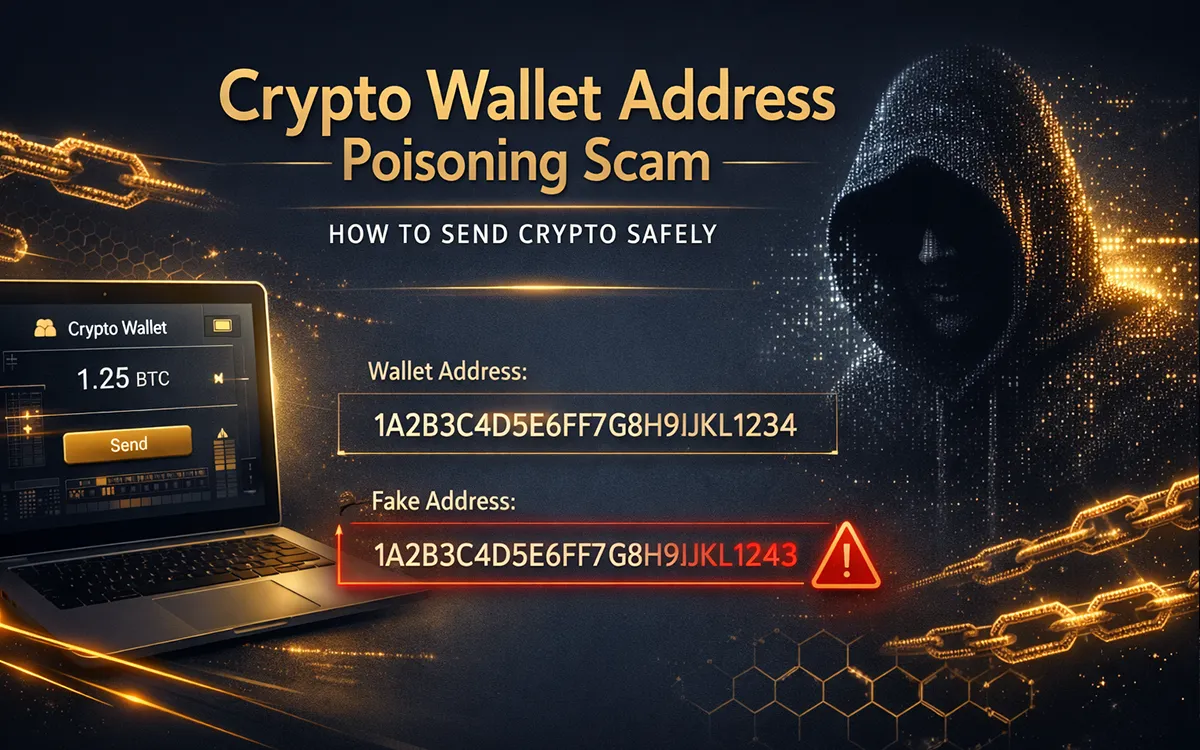
- Cryptocurrency
- June 10, 2024
Table of Contents
Understanding the Evolution of Email Scams
As we move into new developments, email scams are becoming increasingly sophisticated. Phishing scams are evolving, specifically targeting traders with email phishing attacks designed to steal sensitive information and financial assets. Staying informed about the evolution of email scams is crucial to safeguarding your investments.
1. The Evolution of Email Scams in today’s world
- Advanced Techniques: Email scams have now been transformed into more sophisticated methods that facilitate fooling the recipients. Scammers change their tactics from generic to personalized ones and use advanced technology to develop very convincingphishing emails.
- Targeting Traders: Traders are, as a matter of fact, the primary targets of an anonymous life, and they busy themselves making transactions with high-profit margins in sum. Email phishing scamsare among the most common ways of masquerading the actual system for trading and advisory financing; thus, they are used to steal sensitive information.
- New Phishing Scams: In today’s advanced world, new variations of phishing attacks have emerged, including Deepfake influencer scammers.who are now creating realistic video content that accompanies phishing emails, further convincing victims of the scam's legitimacy and deepfake emails and AI-generated fraudulent messages.
2. Common Types of Email Phishing Scams
- Financial Institution Impersonation: Instead of evening and morning calls, scammers provide links that users have to click on to verify accounts or pay for services, mentioning the names of some real banks or trading platforms.
- False Security Alerts: Your trading account is compromised. The message that you will see in the e-mails will persuade you to withdraw your money and then direct you to a link through which you can reset your password. A typical lead to a phishing attack will be what you'll find mostly.
- Investment Frauds: In every single email, different trading ideas are suggested by a scammer who claims to be a stockbroker from a certain company that had an IPO, which in the end winds up a lie.
- Phishing emails to traders: The types of email phishing attacks are very narrow; indeed, a single email that would be aimed at the trader to act as a trading alert, a withdrawal request, or a financial loan.
3. Identifying Phishing Email Attacks
To avoid falling victim to phishing scams, be aware of these common tactics:
- Use of Poor Grammar and Spelling: It is for this reason that even the more advanced phishing scams are sure to incorporate minor language errors.
- Unfamiliar email sender addresses: Scrupulously verify the email sender's email address. The recipient's name should be a full match. Some scammers take names similar to actual individuals, but if you notice the small differences, it may be a fraud.
- Unanticipated Attachments: It is best to be attentive to any unsolicited attachments, as they might be attempts to inject malware or spyware that would be used to steal your information.
- Information personal data requests: Trustworthy organizations would never request private data, such as passwords or social security numbers, to be transmitted by email.
4. Protecting yourself from email phishing scams
To protect oneself from the various email scams, one should follow these protective measures:
- Verify the Sender: One should always verify the sender’s info even before reacting to a message wherein the sender asks for sensitive details.
- Install a security application: Get the device protected from malware and spyware by installing updated security software.
- Allow Multi-Factor Authentication: Maximize security of each transaction done through multi-factor authentication (MFA) token.
- Become knowledgeable: Keep yourself up to date on all the top phishing scams and also on real fraudulent email examples to spot and avoid scams.
5. What to Do If You've Been Targeted?
If you suspect an email scam, take the following steps:
- Do Not Respond: Don't create any reaction with the fast taker by replying to the email or clicking any links.
- Report the Scam: Send theemail phishing scam that you have experienced to your email provider and notify any financial institutions that are associated.
- Change Your Passwords: Make sure to change the passcodes of all the trading and financial accounts to prevent any interlopers from entering them.
- Seek professional help: If you had the experience of losing finances in email scams or trading scams, then reach out for professional help to recover your funds.
Final Thoughts
The evolution of phishing scams in today’s modern world poses a significant threat to traders. Phishing scams are becoming more sophisticated, making it essential to stay vigilant and informed.
Protect your finances by recognizing the warning signs of email scams and taking proactive steps to secure your information.
If you suspect you've been targeted by an email phishing attack, don't hesitate to seek help. Visit Global Financial Recovery for assistance in recovering from financial losses due to trading scams.
FAQs (Frequently Asked Questions)
Email phishing scams are real scams that portray to be actual financial institutions and attempt to gain personal information this way. Businessmen are the persons who mostly become victims of the scams because they transact personal and financial details, which become valuable objectives of the con-artists.
Look for signs like unsolicited emails, urgent requests for personal details, and suspicious links. Phishing emails often have small errors or offer deals that seem too good to be true.
Trading scams are rising because scammers use social media and email to reach many people quickly. New technologies like AI and deepfakesmake these scams more convincing.
Do not click any links and do not provide any personal information. Inform your internet provider about the email, also you can report and contact scam recovery experts, who can assist you.
Use complex, unique codes, make a two-step protection system the rule, and always stay aware of the new phishing scams.





